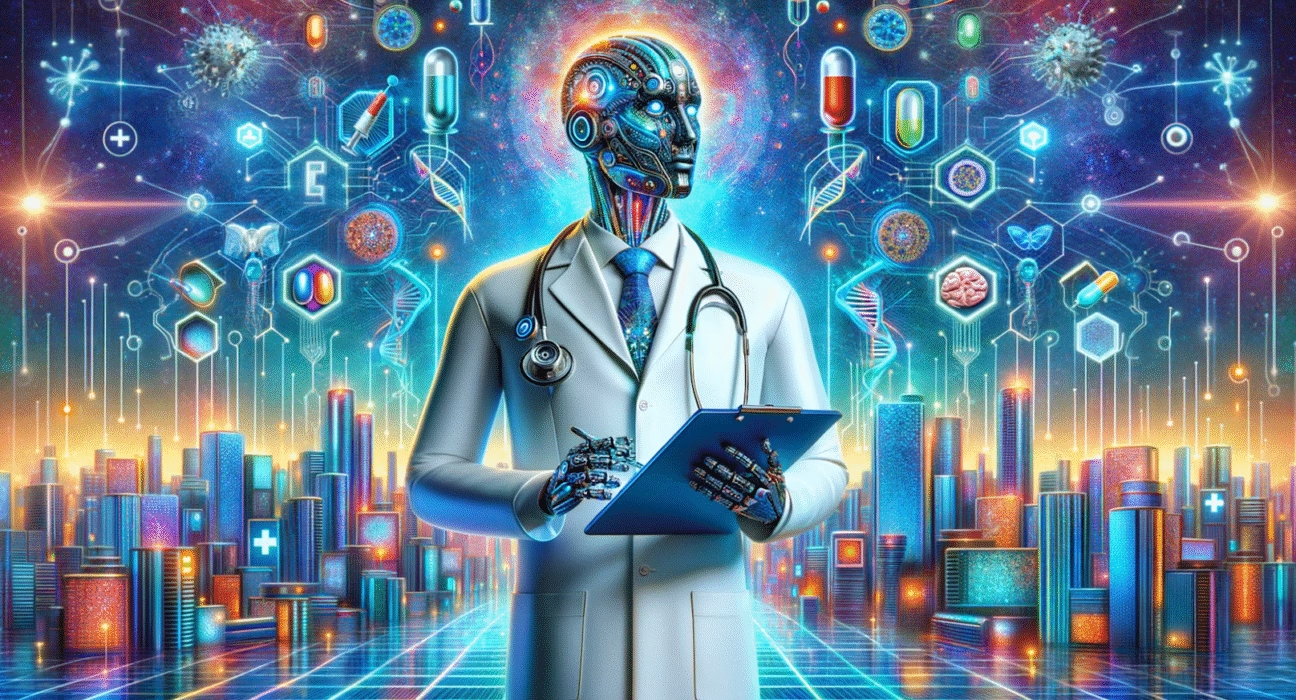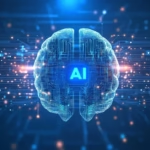“`html
AI Breakthroughs in Scientific Research 2025 and Beyond
Estimated reading time: 15 minutes
Key Takeaways
- The current year marks a significant acceleration in AI development, impacting innovation across various scientific fields.
- AI breakthroughs in scientific research 2025 are revolutionizing materials science, climate modeling, and drug discovery.
- AI is enabling personalized medicine, advanced diagnostic tools, and integration with robotic surgery through AI advancements in health and science.
- The impact of generative AI on business 2025 is profound, transforming content creation, product development, and customer service.
- Anticipated key AI trends for 2026 include ethical AI development, explainable AI (XAI), and Edge AI.
- The evolution towards multimodal and general AI understanding represents a significant step towards more human-like artificial intelligence.
- AI’s ability to process diverse data types is crucial for tackling complex, real-world challenges.
Table of contents
- AI Breakthroughs in Scientific Research 2025 and Beyond
- Key Takeaways
- The Frontier of Discovery: AI Breakthroughs in Scientific Research 2025
- Transforming Health and Life Sciences with AI
- The Business Revolution: Impact of Generative AI in 2025
- Charting the Future: Key AI Trends for 2026
- The Pursuit of Deeper Intelligence: Multimodal and General AI Understanding
- Frequently Asked Questions
The relentless march of artificial intelligence continues to redefine the boundaries of innovation. This year, in particular, stands out as a pivotal moment, showcasing an unprecedented acceleration in AI development that is reshaping scientific discovery, healthcare, business operations, and our very understanding of intelligence itself. We are witnessing not just incremental improvements, but foundational shifts driven by AI. The phrase “**AI breakthroughs in scientific research 2025**” is no longer a futuristic concept but a present reality, heralding a new era of scientific exploration. Beyond pure research, the ripple effects are undeniable, with significant **AI advancements in health and science** and a profound **impact of generative AI on business 2025**. As we look ahead, emerging **key AI trends for 2026** suggest an even more integrated and sophisticated AI landscape, pushing towards **multimodal and general AI understanding**. This post aims to provide a comprehensive yet accessible overview of these critical AI developments, offering a glimpse into their current applications and future trajectory.
The Frontier of Discovery: AI Breakthroughs in Scientific Research 2025
The realm of scientific research is experiencing a seismic shift, driven by the power of artificial intelligence. The year 2025 is proving to be a landmark for “**AI breakthroughs in scientific research 2025**,” as sophisticated AI models are accelerating the pace of discovery and enabling scientists to tackle challenges previously considered insurmountable.
Materials Science Focus:
In materials science, AI is proving to be an invaluable tool for innovation. Microsoft’s work with Density Functional Theory (DFT) simulations exemplifies this. These AI models are capable of simulating the complex behavior of electrons within materials. This detailed understanding is crucial for designing and discovering novel materials with specific properties. The applications are vast, ranging from the development of new pharmaceuticals to, critically, the creation of more sustainable and effective green fertilizers. This breakthrough has the potential to address global food security and environmental concerns.

Climate Modeling Enhancement:
Understanding our planet’s intricate climate systems is more critical than ever. AI foundation models, such as Aurora, are significantly enhancing our ability to model and predict environmental events. These advanced models can process vast amounts of climate data, identifying patterns and correlations that human analysis might miss. By improving the accuracy of climate predictions, AI plays a vital role in preparing for and mitigating the impact of natural disasters like cyclones, offering crucial insights for policymakers and disaster management agencies.

Accelerated Drug Discovery:
The pharmaceutical industry is undergoing a revolution thanks to generative chemistry powered by AI. Traditionally, the timeline for drug discovery and development has been notoriously long and expensive. AI is drastically reducing this period by not only designing novel molecular structures but also validating their potential efficacy. Processes that once took years can now be achieved in mere weeks, enabling a faster pipeline for life-saving medications and treatments.
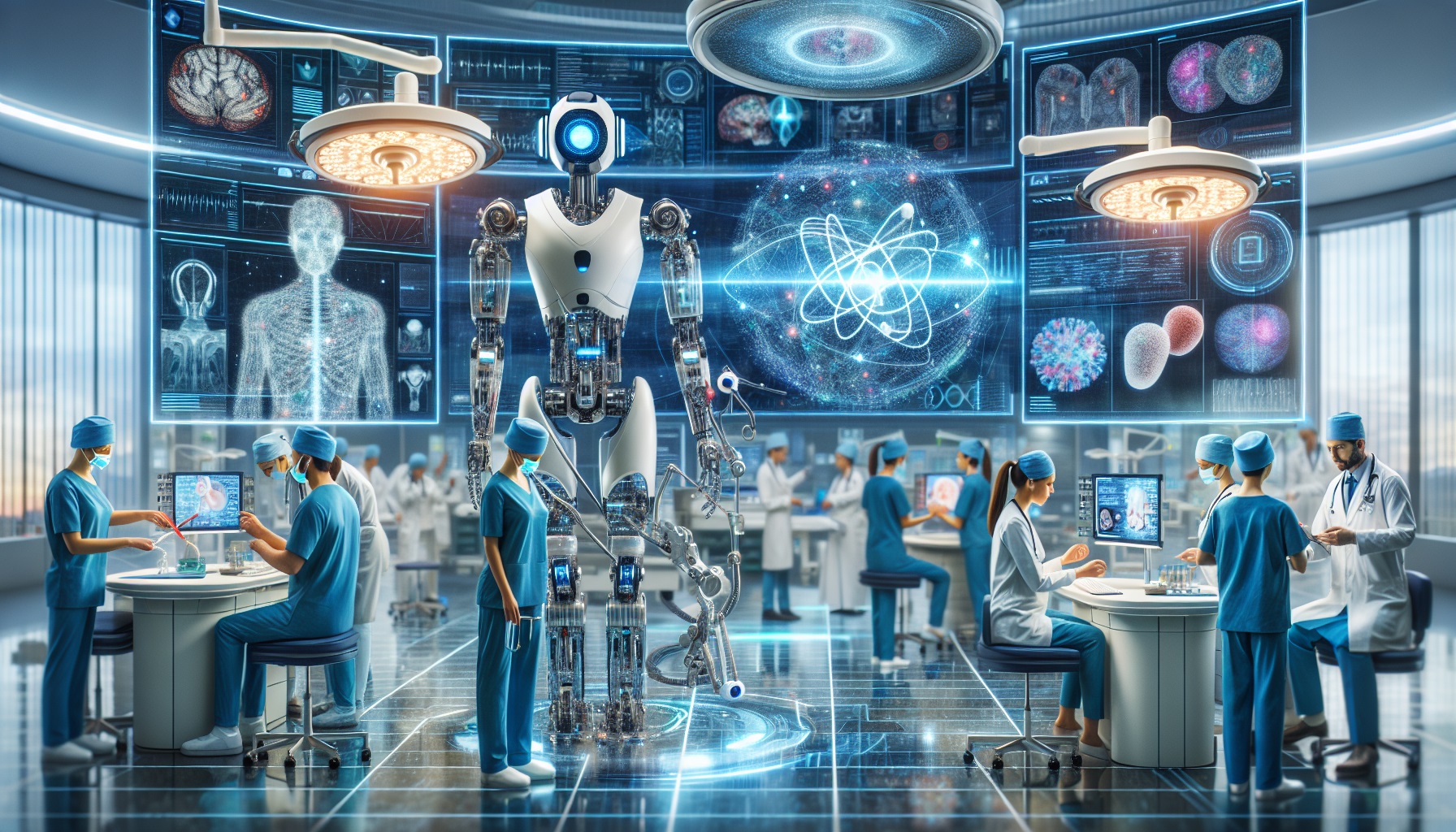
These AI-driven advancements are fundamentally changing the scientific landscape. They are not merely accelerating existing research methodologies but are enabling entirely new avenues of inquiry and empowering scientists to tackle previously intractable problems, from designing novel materials to combating climate change and discovering new medicines at an unprecedented rate.
Transforming Health and Life Sciences with AI
The influence of AI extends far beyond fundamental scientific research, making profound contributions to the health and life sciences sectors. These **AI advancements in health and science** are leading to more personalized, efficient, and effective healthcare solutions.
Personalized Medicine:
One of the most significant impacts of AI in healthcare is the realization of truly personalized medicine. AI algorithms can analyze immense datasets, including genomic information, patient history, and treatment responses, to create highly individualized treatment plans. This tailored approach leads to demonstrably improved patient outcomes, as treatments are optimized for each individual’s unique biological makeup and condition.
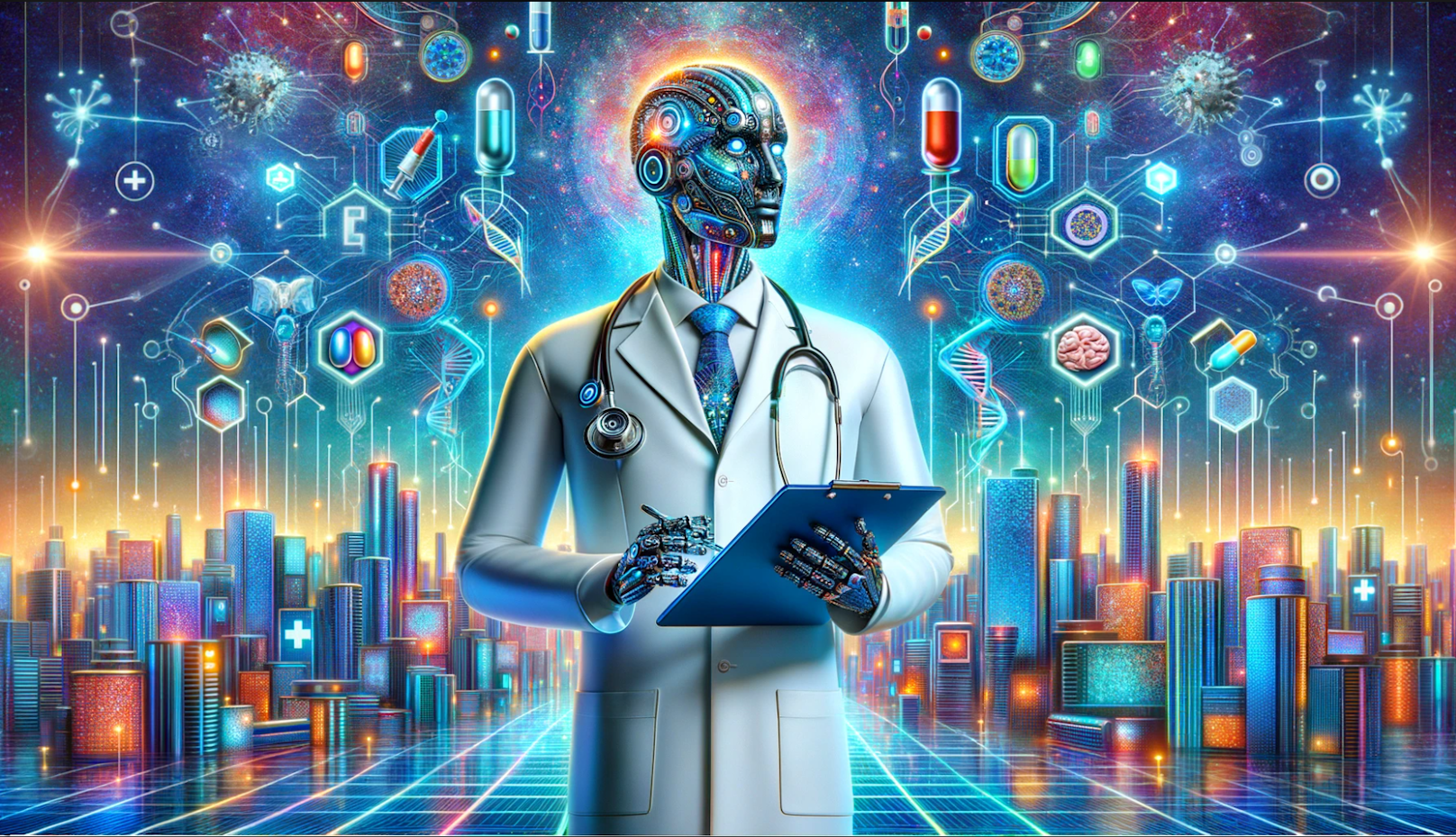
Advanced Diagnostic Tools:
AI is revolutionizing medical diagnostics through advanced tools. Models like PadChest-GR are specifically designed to enhance the analysis of medical images, such as X-rays and CT scans. These AI systems act as invaluable assistants to radiologists, improving the accuracy and speed with which diseases can be detected. Early and accurate diagnosis is crucial for effective treatment, and AI is significantly bolstering these capabilities.

Robotic Surgery Integration:
The integration of AI with robotic surgical systems is ushering in a new era of precision in the operating room. AI enhances the capabilities of surgical robots, allowing for greater dexterity, accuracy, and control during complex procedures. This leads to more minimally invasive techniques, potentially reducing recovery times and improving patient safety.

Collectively, these **AI advancements in health and science** are contributing to a healthcare system that is not only more efficient but also delivers better results for patients. The ability of AI to process complex data, identify subtle patterns, and assist in precise interventions marks a significant leap forward in medical practice and patient care.
The Business Revolution: Impact of Generative AI in 2025
The commercial landscape is being fundamentally reshaped by the transformative power of generative AI. The “**impact of generative AI on business 2025**” is already significant and is poised to grow exponentially, driving innovation and efficiency across industries.
Content and Marketing:
Generative AI is revolutionizing how businesses create and distribute content. It automates and enhances the generation of diverse marketing materials, from compelling ad copy and engaging social media posts to detailed product descriptions and personalized email campaigns. This allows marketing teams to operate more efficiently and creatively, reaching wider audiences with tailored messages.
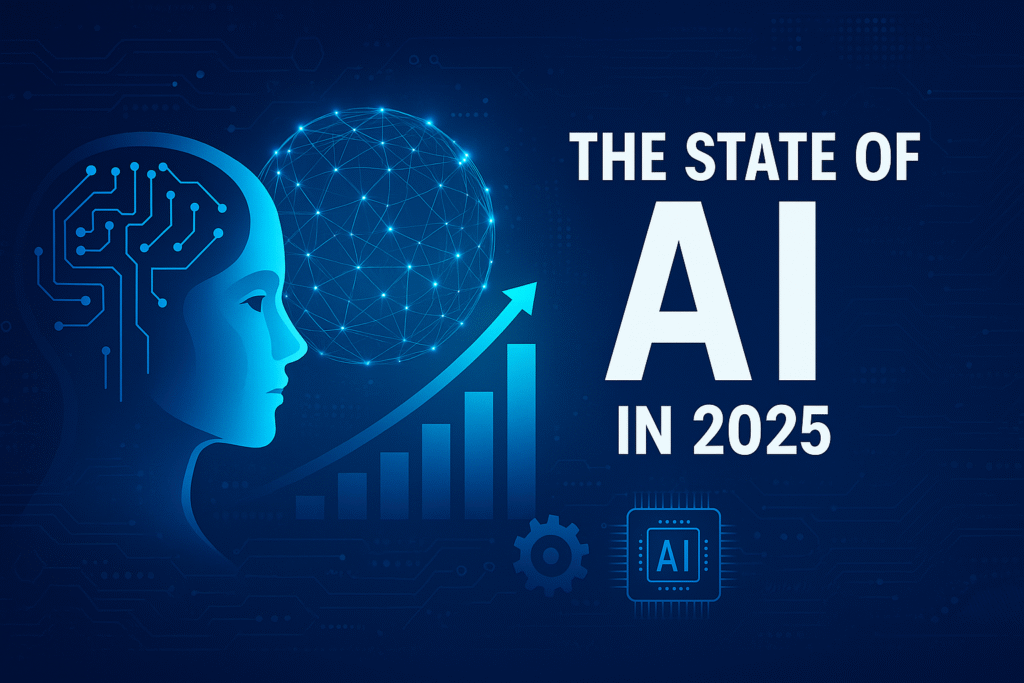
Product Development and Innovation:
The pace of innovation in product development is accelerating thanks to AI. Generative AI can assist in rapid prototyping, explore a vast range of design possibilities, and optimize product features based on simulated performance data. This significantly shortens the product development cycle, enabling businesses to bring new and improved products to market faster.
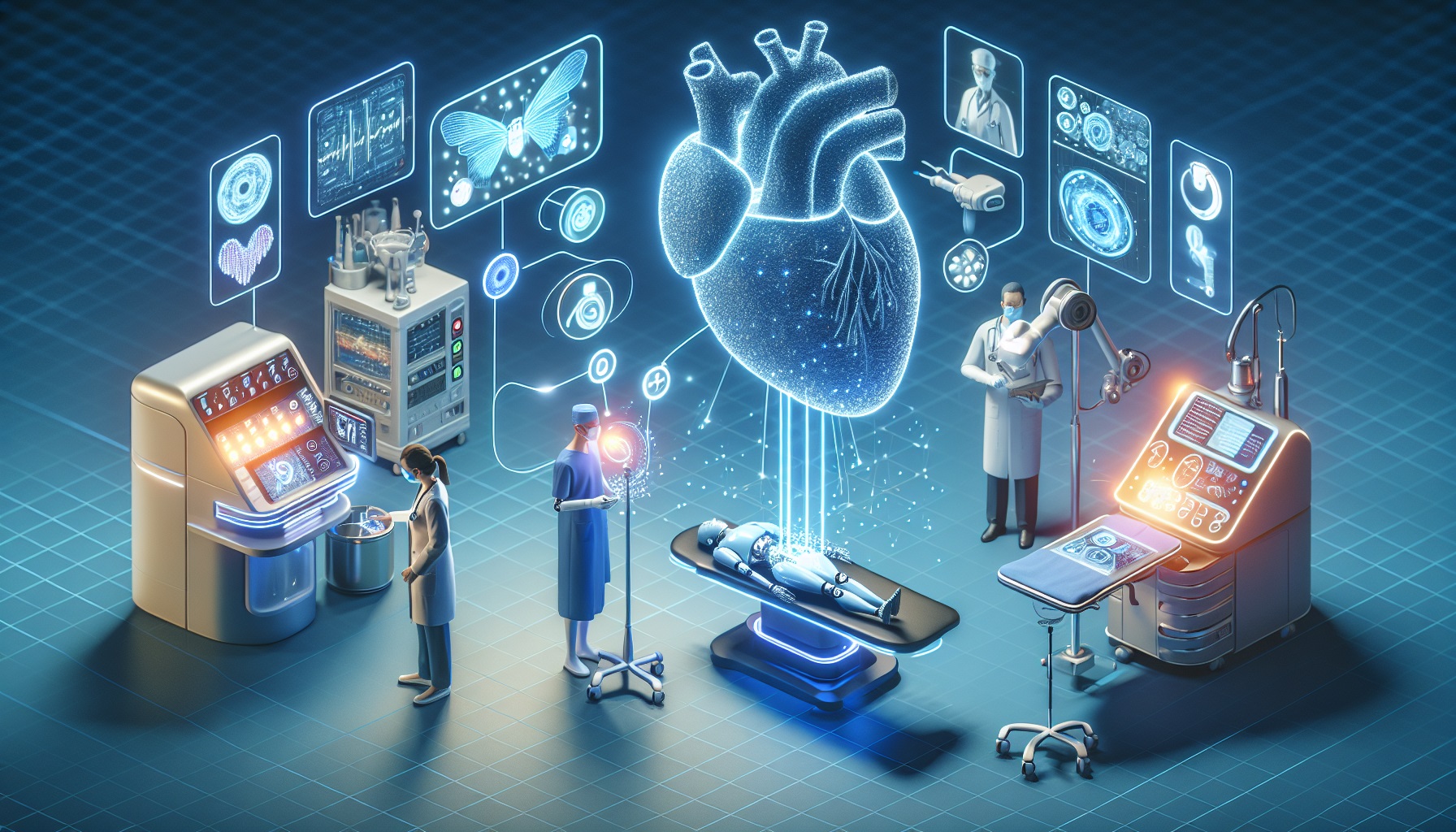
Customer Service Enhancement:
Generative AI is transforming customer service through intelligent chatbots and virtual assistants. These AI-powered tools can provide instant, personalized, and scalable support to customers 24/7. By handling common inquiries and offering solutions efficiently, AI improves customer satisfaction and frees up human agents to address more complex issues.

Businesses across various sectors are already reaping the benefits of generative AI adoption. From e-commerce and software development to finance and media, AI is streamlining operations, fostering creativity, and enhancing customer engagement. The ability of AI to automate repetitive tasks and generate novel content is a powerful catalyst for business growth and digital transformation.
Charting the Future: Key AI Trends for 2026
As we look beyond the immediate advancements, several critical AI trends are emerging that will shape the future of artificial intelligence and its integration into society. The “**key AI trends for 2026**” point towards a more responsible, understandable, and distributed AI ecosystem.
Ethical AI Development:
The increasing power and pervasiveness of AI necessitate a strong focus on ethical development and deployment. Ensuring fairness, transparency, and accountability in AI systems is paramount. This trend involves creating AI that not only performs effectively but also upholds human values and avoids bias, discrimination, or unintended harm.

Explainable AI (XAI):
As AI systems become more complex, understanding their decision-making processes is crucial for building trust and ensuring their safe application. Explainable AI (XAI) focuses on developing AI models whose reasoning can be comprehended by humans. This is particularly vital in critical fields like healthcare, finance, and autonomous systems, where the ‘why’ behind an AI’s decision is as important as the decision itself.
Future of Artificial Intelligence

Edge AI:
Edge AI refers to the deployment of AI algorithms directly on devices or local hardware, rather than relying solely on cloud-based processing. This trend offers significant advantages, including real-time data processing, reduced latency, enhanced privacy, and improved operational efficiency, especially in applications where immediate responses are critical, such as autonomous vehicles or industrial IoT devices.
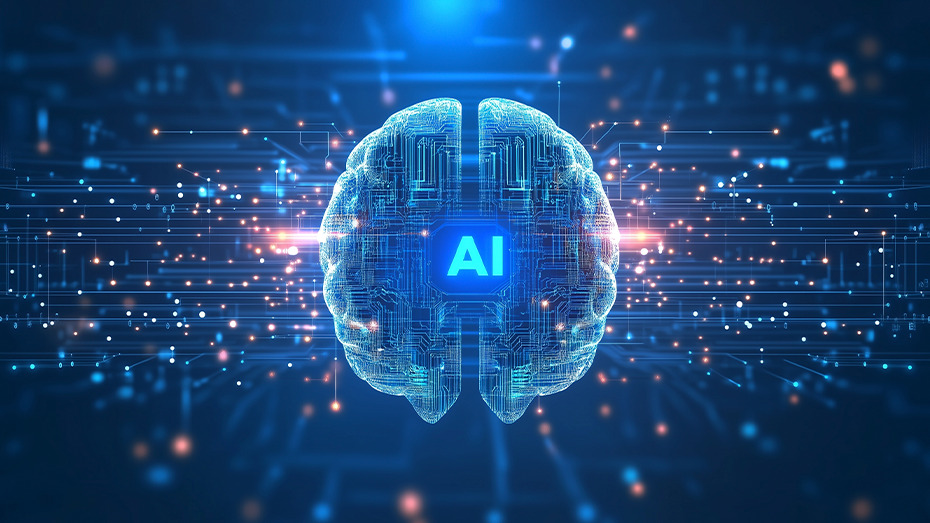
In addition to these major trends, we can expect continued developments in areas such as AI regulation, the creation of more specialized AI models for niche applications, and the ongoing exploration of AI’s potential in scientific discovery and creative endeavors. These evolving trends highlight a maturing AI landscape, focused on not just capability but also on responsible and human-centric integration.
The Pursuit of Deeper Intelligence: Multimodal and General AI Understanding
At the forefront of AI research lies the ambitious quest for deeper intelligence, pushing the boundaries towards systems that can understand and interact with the world in more human-like ways. This pursuit is embodied in the development of “**multimodal and general AI understanding**.”
Defining Multimodal AI:
Multimodal AI refers to artificial intelligence systems capable of processing, understanding, and integrating information from multiple types of data sources simultaneously. Unlike AI models that specialize in a single data type (like text or images), multimodal AI can combine insights from text, images, audio, video, and even sensor data. This integrated approach mirrors human perception, allowing AI to gain a more holistic and nuanced understanding of complex situations, interactions, and environments.

The Quest for AGI:
The ultimate goal for many in the AI field is Artificial General Intelligence (AGI). AGI represents the hypothetical capability of an AI to understand, learn, and apply its intelligence across a wide range of tasks, essentially possessing the cognitive abilities of a human being. While AGI remains a long-term aspiration rather than an immediate reality, advancements in areas like multimodal AI are considered crucial stepping stones. The ability to process diverse information streams and learn contextually is fundamental to developing more generalizable intelligence.
Future of Artificial Intelligence
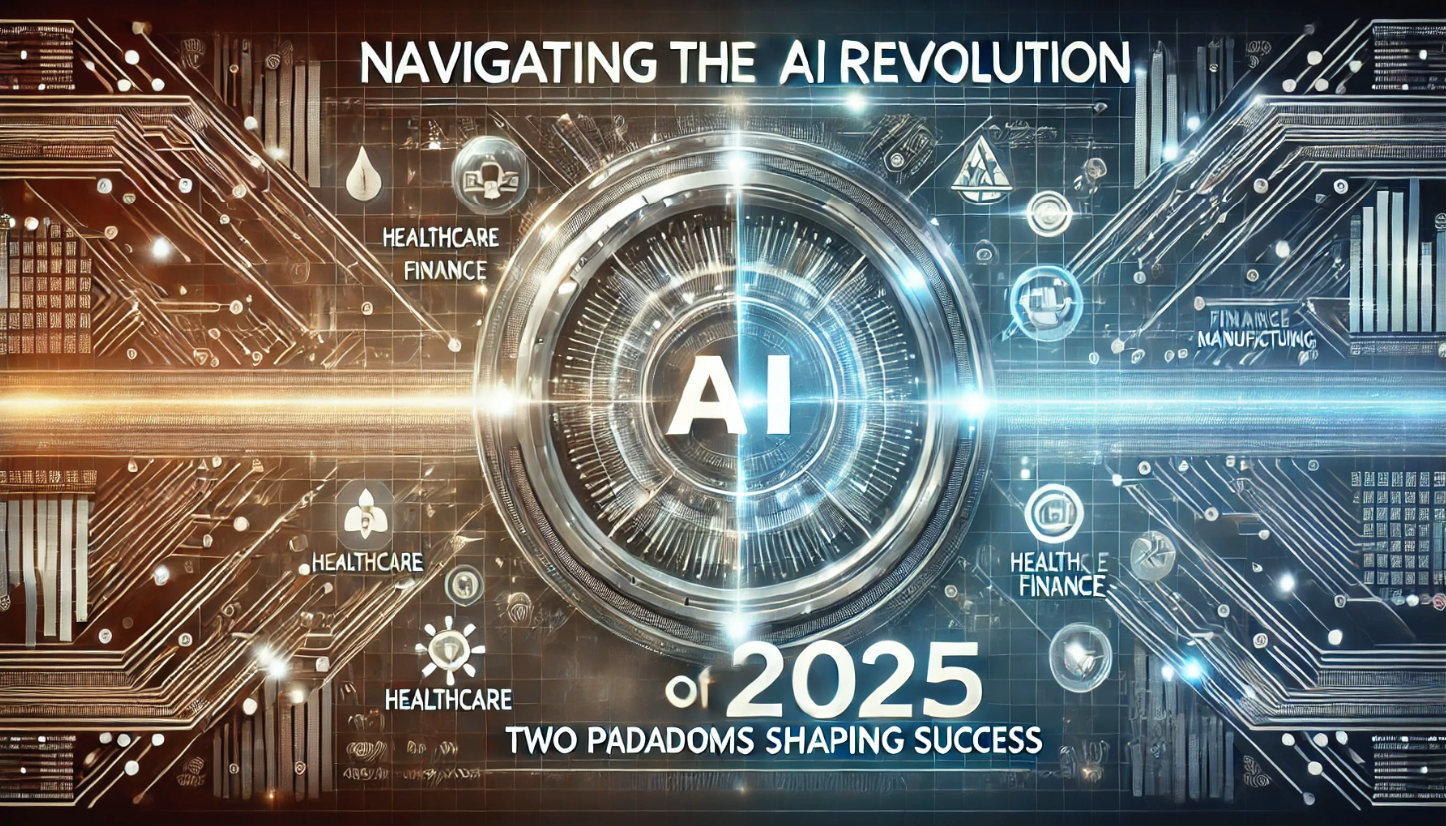
The convergence of multimodal capabilities and the drive towards general intelligence is foundational to unlocking the next generation of AI applications. It is this deeper understanding that will enable AI systems to tackle increasingly complex and nuanced problems, driving further breakthroughs in scientific research, improving the sophistication of business applications, and fostering more intuitive human-AI collaboration.
Concluding Thoughts
As we reflect on the rapid evolution of artificial intelligence, it becomes clear that we are in an era of unprecedented transformation. The journey has taken us from early AI concepts to sophisticated systems that are now driving tangible progress across multiple domains. We’ve explored the significant “**AI breakthroughs in scientific research 2025**,” witnessing how AI is accelerating discovery in fields like materials science and climate modeling. The profound impact of **AI advancements in health and science** is leading to more personalized and effective healthcare. Furthermore, the transformative “**impact of generative AI on business 2025**” is reshaping industries by enhancing productivity, creativity, and customer engagement. Looking ahead, the “**key AI trends for 2026**,” including ethical AI and explainable AI, signal a maturing focus on responsible development.

The overarching narrative is one of accelerating progress and ever-expanding influence. AI is no longer a niche technology; it is a pervasive force that is fundamentally altering how we work, live, and understand the world. The ongoing evolution towards **multimodal and general AI understanding** promises even more sophisticated capabilities, bringing us closer to artificial intelligence that can comprehend and interact with the world in ways previously confined to science fiction.
The future of AI is dynamic and filled with immense potential. As these technologies continue to develop, their impact will only deepen, offering solutions to some of humanity’s most pressing challenges and opening up new frontiers of innovation. We encourage you to join the conversation. Share your thoughts on these AI developments in the comments below, pose your questions, or share this post with your network to foster a broader discussion on the exciting future of artificial intelligence.
AI Impact on Digital Transformation
Frequently Asked Questions
Q1: What are the most significant AI breakthroughs in scientific research expected in 2025?
A1: Key breakthroughs include AI’s role in discovering new materials through simulations, enhancing climate modeling accuracy, and drastically accelerating drug discovery pipelines through generative chemistry.
Q2: How is AI advancing healthcare beyond research?
A2: AI is enabling personalized medicine by tailoring treatments, powering advanced diagnostic tools for image analysis, and improving precision in robotic surgery.
Q3: What is the primary impact of generative AI on businesses in 2025?
A3: Generative AI is revolutionizing content creation and marketing, accelerating product development and innovation, and enhancing customer service through AI-powered chatbots.
Q4: What are some key AI trends to watch for in 2026?
A4: Leading trends include the emphasis on ethical AI development, the growth of Explainable AI (XAI) for transparency, and the expansion of Edge AI for decentralized processing.
Q5: What is the difference between multimodal AI and general AI?
A5: Multimodal AI processes and understands information from multiple data types (text, image, audio, etc.) simultaneously. General AI, or AGI, is a hypothetical AI with human-level cognitive abilities across a wide range of tasks; multimodal understanding is seen as a step towards AGI.
Q6: How does AI in materials science work?
A6: AI models, like those using Density Functional Theory (DFT), simulate the behavior of electrons in materials to predict properties and discover novel substances for applications like green fertilizers and new drugs.
Q7: Why is Explainable AI (XAI) important?
A7: XAI is crucial for building trust in AI systems, especially in critical applications, by making their decision-making processes understandable to humans. This ensures accountability and aids in debugging and improvement.
Q8: What are the benefits of Edge AI?
A8: Edge AI offers real-time processing, reduced latency, enhanced data privacy, and improved efficiency by performing AI computations directly on local devices rather than relying on the cloud.
Q9: Can AI truly understand information like humans do?
A9: Current AI, especially multimodal AI, is getting closer to processing information in a more holistic, human-like way by integrating diverse data. However, true consciousness and human-level general intelligence (AGI) remain long-term research goals.
Q10: How is AI impacting customer service?
A10: AI-powered chatbots and virtual assistants provide instant, personalized, and scalable customer support, improving efficiency and customer satisfaction by handling queries and offering solutions 24/7.
“`


